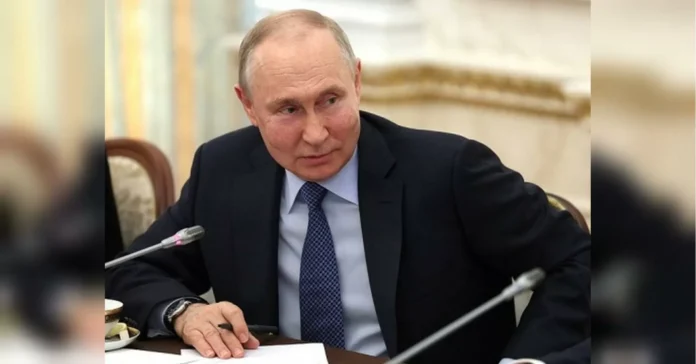As the political tensions between Russia and the West continue to escalate, there is an increasing level of uncertainty surrounding the future of both sides. Amidst this uncertainty, one voice that has emerged is that of General Alnur Musaev, who believes that President Vladimir Putin is not experiencing panic, but rather a fear for his own future. According to Musaev, it is important for Europe and Ukraine to capitalize on this fear and strengthen their position in the ongoing power struggle.
General Alnur Musaev is a highly respected military leader in Russia, known for his strategic thinking and insightful analysis of political situations. In a recent interview, he shared his thoughts on the current state of affairs in Russia and the role of Europe and Ukraine in shaping its future.
Musaev believes that President Putin is not experiencing panic, but rather a fear for his own future. Putin’s decision to annex Crimea in 2014 was a calculated move to boost his popularity and maintain his grasp on power. However, the subsequent economic sanctions imposed by the West and the ongoing conflict in eastern Ukraine have left Russia in a weakened state. Putin’s hold on power is now threatened, and this has instilled a fear in him about his own future.
According to Musaev, this fear has made Putin more aggressive in his actions towards the West, as he tries to show strength and maintain his image as a strong leader. However, this also presents an opportunity for Europe and Ukraine to exert their influence and push back against Russian aggression.
Musaev stresses the importance of Europe and Ukraine taking a proactive approach in dealing with Russia. He believes that they should use their economic and political leverage to put pressure on Putin and his allies. This could include imposing stronger sanctions and supporting pro-democracy movements within Russia. By taking a strong stance, Europe and Ukraine can weaken Putin’s grip on power and potentially force him to reconsider his aggressive actions.
In addition, Musaev suggests that Europe and Ukraine should focus on strengthening their own defenses and forming strategic alliances with other countries, such as the United States. This would send a clear message to Putin that his actions will not go unpunished and that he will face consequences for his aggression.
Musaev’s views may be controversial, but they do offer a unique perspective on the current situation in Russia. His analysis of Putin’s fear for his own future sheds light on the motivations behind his actions and presents an opportunity for Europe and Ukraine to take a stronger stance.
However, it is important to note that Musaev’s suggestions should not be seen as advocating for a full-scale conflict with Russia. Rather, his message is one of strategic thinking and leveraging the current situation to create a more stable and secure future for both sides.
In conclusion, General Alnur Musaev’s insights into Putin’s fear for his own future provide a different perspective on the ongoing tensions between Russia and the West. By understanding this fear and using it to their advantage, Europe and Ukraine can play a crucial role in shaping the future of Russia and the region as a whole. It is now up to them to take a proactive approach and capitalize on this opportunity for a more peaceful and stable future.

